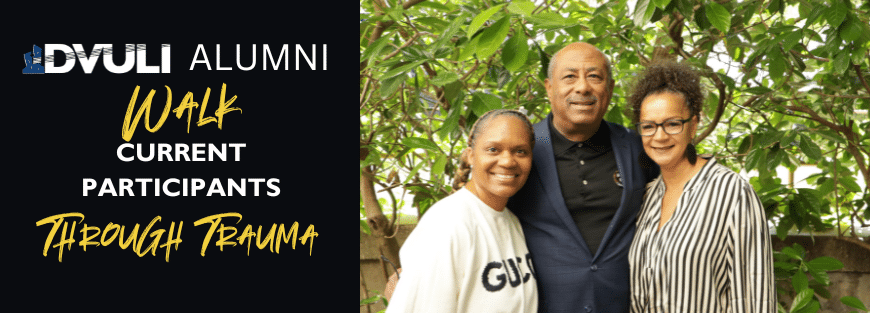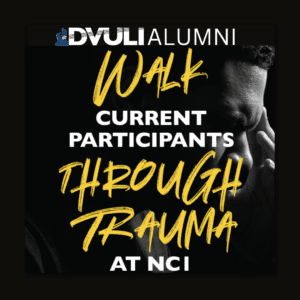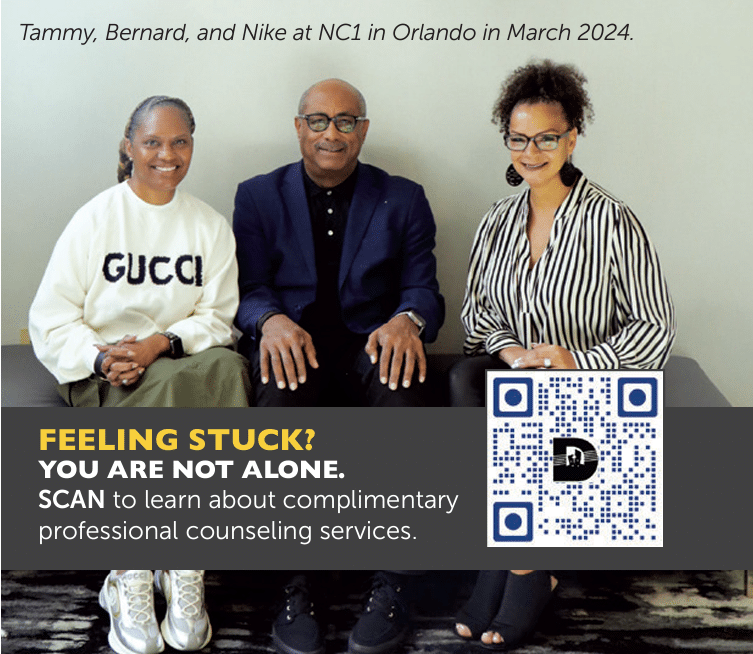DVULI Alumni Walk Current Participants Through Trauma at NC1
Posted by: DVULI | May 29, 2024

By Kimberlee Mitchell, Staff Writer
Known for cracking participants open, DVULI’s first national conference (NC1) elevates the importance of mental health with intention as unresolved trauma can impede the impact of urban youth work and lead to burnout—or worse.
The traditional Core Values sessions were followed by Nike Greene’s (Portland 2005) heart-wrenching testimony about surviving trauma, which led many in the room to their own sobering realizations. Some found themselves with a visceral need to process the triggering, heavy mental health content. This year, participants were given the opportunity to receive immediate professional support. DVULI alumni Tammy Barnett (Cincinnati 2012) and Bernard Franklin (Kansas City 2001), both professional therapists with a PhD, returned to Orlando to assist participants by way of “Processing Stations.” Held in a designated private space, these brief 30-minute appointments allowed time to discuss the trauma the training session dredged up. Tammy and Bernard prayed with each participant and served with listening ears, affirmations, and recommendations. “I appreciated having a space where I could talk through a new awareness that emerged after listening to Nike,” said one participant who admitted her Latino culture looks down on therapy. “Tammy heard me, related to what I said, and affirmed my feelings, which helped me work through my insecurities. It’s so clear that I need to process my trauma. I’m going to call my therapist.
As DVULI alumni, Tammy and Bernard know the rigors of the training and why it’s integral to trust the process. “When I think back to 2012 sitting through NC1 as a participant, I immediately reflect upon how the time spent there created healthy patterns and practices that continue today—and I expect, for the rest of my life,” Tammy reflected. “Trying to absorb it all at once was overwhelming at times. I’m grateful for the DVULI staff and my mentor, who helped me understand that I had to take the core values beyond the cohort experience and figure out how and what they would mean in the real world.”
Finding someone with whom you can share your heart is an important step toward stopping that unhealthy cycle and making a change.
DVULI staff ensured each participant had a private space to share.
For many in the room, the real world means your pastor is also your boss. “They stay silent, not wanting to share things that could affect their job or working relationship,” explained Bernard. “In my processing stations meetings, I gave individuals care, attention, and direct instruction on how they could follow up in their community to find a support circle. Otherwise, emotional neglect will lead to working harder and harder for approval—and eventually, burnout.” Finding someone with whom you can share your heart is an important step toward stopping that unhealthy cycle and making a change.





